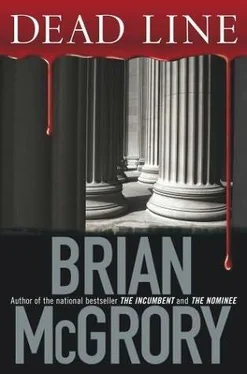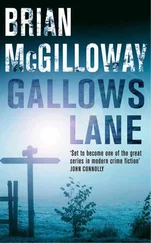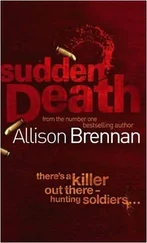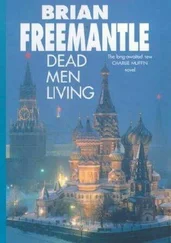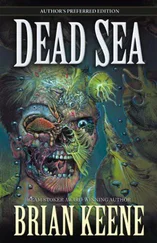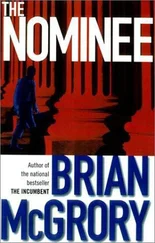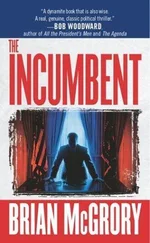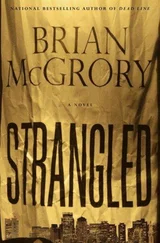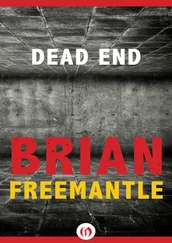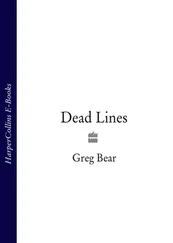Brian Mcgrory - Dead Line
Здесь есть возможность читать онлайн «Brian Mcgrory - Dead Line» весь текст электронной книги совершенно бесплатно (целиком полную версию без сокращений). В некоторых случаях можно слушать аудио, скачать через торрент в формате fb2 и присутствует краткое содержание. ISBN: , Жанр: Политический детектив, на английском языке. Описание произведения, (предисловие) а так же отзывы посетителей доступны на портале библиотеки ЛибКат.
- Название:Dead Line
- Автор:
- Жанр:
- Год:неизвестен
- ISBN:0-7434-8034-1
- Рейтинг книги:3 / 5. Голосов: 1
-
Избранное:Добавить в избранное
- Отзывы:
-
Ваша оценка:
- 60
- 1
- 2
- 3
- 4
- 5
Dead Line: краткое содержание, описание и аннотация
Предлагаем к чтению аннотацию, описание, краткое содержание или предисловие (зависит от того, что написал сам автор книги «Dead Line»). Если вы не нашли необходимую информацию о книге — напишите в комментариях, мы постараемся отыскать её.
Dead Line — читать онлайн бесплатно полную книгу (весь текст) целиком
Ниже представлен текст книги, разбитый по страницам. Система сохранения места последней прочитанной страницы, позволяет с удобством читать онлайн бесплатно книгу «Dead Line», без необходимости каждый раз заново искать на чём Вы остановились. Поставьте закладку, и сможете в любой момент перейти на страницу, на которой закончили чтение.
Интервал:
Закладка:
He came back with two bottles of Budweiser and absently handed me mine as he settled back into his seat. He took a long, thirsty pull, let out a quiet, pleasant sigh, and said, “I’d rather have a little bit of bourbon, but I’ve got work to do.”
I didn’t respond. He said, “We’ve had a pretty promising break in the case, but not enough of one to solve it.”
The refrigerator rattled in the corner, or maybe that was my heart. Somewhere down the hallway, a door slammed shut. Then he added, “May we speak off the record, and we’ll figure out what you can use when we’re done?”
Seeing as I didn’t even have so much as a pen and a piece of paper on me, I said, “Sure.”
“And I mean, off the record,” he added for emphasis.
“So do I,” I replied.
For the record, off the record, in the vernacular of the information industry, means that any information provided to a reporter is unusable for publication or broadcast unless completely and independently confirmed. Some reporters, maybe most reporters, confuse this simple fact, and believe that off the record actually means the information is usable just so long as they don’t identify the source of the information. They’re wrong. What they’re actually thinking about is “background” information, where a particular source will provide material on the condition of anonymity, meaning they are identified as, perhaps, an official familiar with the investigation. Two different things that most reporters can’t get straight, though Jankle seemed to know full well the difference. I liked him for that already, or at least respected him.
He leaned toward me in his chair, took another short sip of his Bud, and, with the bottle still in his hand, said, “We have new information that Toby Harkins is linked in some way to the theft. We’re in the process of trying to figure out how.”
And there goes another percussion bomb. There’s another round fired into the institutional-white wall. There’s that foot-in-the-gut thing again.
Toby Harkins, in point of fact, is one of the biggest thugs that Boston has ever known, a coleader of an Irish Mafia that terrorized huge swaths of this city by running drugs, loan-sharking money and killing a sickening number of people who dared cross its path. Jankle had pursued him for years, finally with success. But Harkins had vanished a year earlier, precisely one day before the United States Justice Department announced its indictments on a litany of charges too long to list here.
By the way, it’s also worth noting that Toby Harkins is the estranged son of the city’s sitting mayor, Daniel Harkins. More on that in a while.
I stayed silent, listening to the quiet buzz of the overhead lights and the gentle ticking of a clock on a distant bookcase. I wanted to see where Agent Jankle was planning to take me before I even tried to alter his course with any questions.
“Now I’m not saying he stole the damned paintings. Seems too delicate an operation for a guy whose idea of sophistication is putting a bullet into the back of people’s heads. But I am saying that he probably knows who stole them, and maybe he even has possession of them now.”
He fell quiet, taking another long gulp of his beer. When he set the brownish bottle back on the table, I watched the bubbles within explode from the middle and rise toward the surface, all festive, even if the mood wasn’t. When he didn’t speak again, I asked, “How do we know that?”
Notice the word we, as in We the people, as in, Jankle and I, or is it me and Jankle, or Jankle and me. No matter. It was another subtle attempt to bond, to show that we were on the same side of the line, and that information shared would reap mutual benefits.
Without hesitating, he said, “We intercepted some correspondence, or rather, we had a piece of intercepted correspondence provided to us, that in some way links Harkins to the paintings. Unfortunately, I can’t be any more specific than that.”
“We’re off the record,” I said, meaning, tell me more.
“I can’t be any more specific than that.” He stared back at me, blank, then picked up his beer. Mine sat in front of me untouched.
I asked, “How seriously are you treating this new information?”
“Very. We now have dozens of agents in this office, in Washington, and abroad, actively and aggressively looking into it. We’re anticipating that the thieves or their representative might be prepared to reach out to authorities to broker the return of the paintings. That’s the usual scenario in these kinds of cases.”
“Meaning for money?” I asked.
“Most definitely.”
“And where does Harkins fit into that?”
He shook his head ruefully and drained his beer. “We’re still trying to figure that out. He may be the broker, skimming a huge percentage of the profits. That would be his way.”
Admittedly, what he was giving me wasn’t a lot, but in the news biz, not a lot doesn’t always mean not enough. The journalistic processor that is my brain quickly kicked into overdrive, determining what I wanted to write versus what I could write versus what I needed to be able to write to get the information into print. And at that point, Jankle and I began the negotiation that precedes almost all source-driven stories of any worth. I borrowed a pad of paper, took down some notes and quotes, and when we arrived somewhere between his maximum offering and my minimum requirement, I stood up to leave.
As I gathered my borrowed belongings and pulled on my coat, I asked in as blasé a way as possible, “Why do you want this in print?”
Truth be known, the question was anything but casual. In the brokerage of information, everyone has an angle. Some people, often politicians and a few select investigators, just like the high of seeing their name or material in print. Others, natural pleasers, get off on befriending reporters, hoping that in some as-yet-unknown way, the relationship will ultimately pay dividends. Still others, those more vendetta-minded, liked to settle scores, and we provided a better forum than most to do just that. In this particular case, I harbored some suspicions that the frisky Feds were trying to spur an underworld war by putting information in play that Toby Harkins possessed several hundred million dollars in stolen treasures, or at least information on their whereabouts. With shootings or maimings or kidnappings come the endless possibilities of angry informants bringing information to federal investigators.
Not that I minded any of this. As in the law, motive in newspaper sourcing is interesting, though not necessarily important.
Jankle remained seated, and at this point, was taking a long slug out of my bottle of Bud, which I never touched. He put it down in front of him and looked up at me with newly tired eyes. He said, “Because right now, we don’t have much of a case. I’m throwing out a line, seeing what I can reel back in. Someone’s going to read what the Record has to write and they’re going to call the FBI tomorrow morning with something more than we already have.” Then, in a softer voice, “At least that’s what I hope.”
There was a moment of silence between us as I drank in just how bone-boring dry this office of his really was. The white walls were bare. The carpet was an institutional gray. His desk was only mildly cluttered. The chairs looked like they came from the waiting room of the Salvation Army. He was a man who cared about success, but not the trappings that go with it.
He added, “Jack, I can’t guarantee you how long this information will remain out of the public realm. The FBI in Washington could call a press conference on this and issue a statement at any time, including tomorrow. This is a high-profile case. There are a lot of agents and assorted supervisors who want some mug-time on the tube.”
Читать дальшеИнтервал:
Закладка:
Похожие книги на «Dead Line»
Представляем Вашему вниманию похожие книги на «Dead Line» списком для выбора. Мы отобрали схожую по названию и смыслу литературу в надежде предоставить читателям больше вариантов отыскать новые, интересные, ещё непрочитанные произведения.
Обсуждение, отзывы о книге «Dead Line» и просто собственные мнения читателей. Оставьте ваши комментарии, напишите, что Вы думаете о произведении, его смысле или главных героях. Укажите что конкретно понравилось, а что нет, и почему Вы так считаете.
